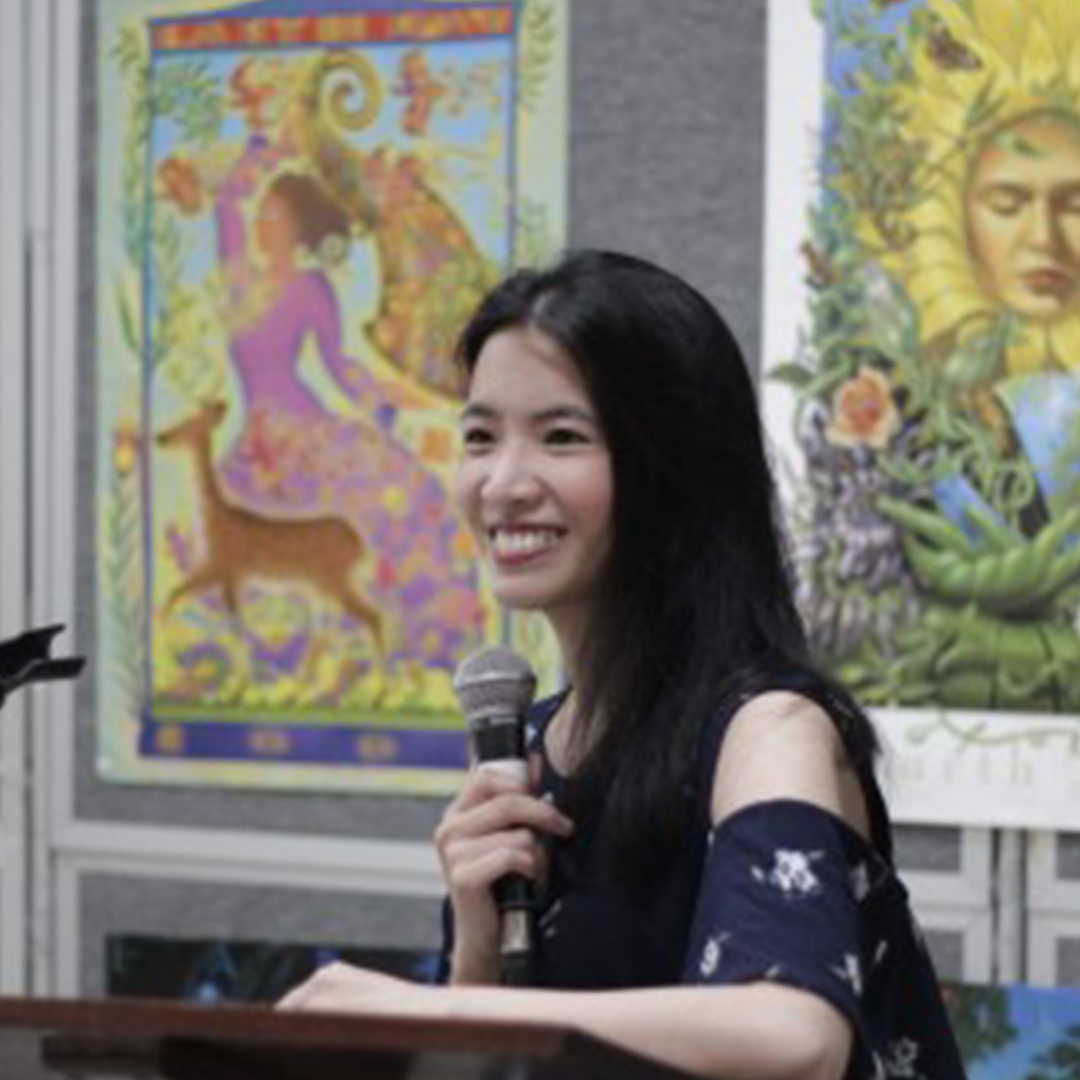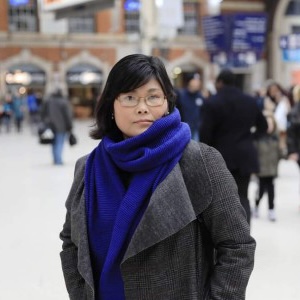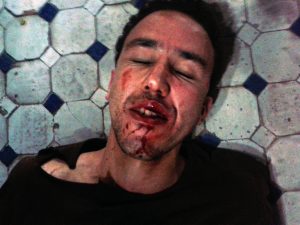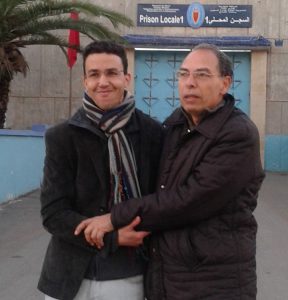The Big Noise
FEATURING

Tammy Lai-ming Ho
Poet

Rob Sears
Writer

Jamie Barton
Opera singer
FEATURING

Poet

Writer

Opera singer
[vc_row][vc_column][vc_column_text]This article is part of Index on Censorship partner Global Journalist’s Project Exile series, which has published interviews with exiled journalists from around the world.[/vc_column_text][vc_single_image image=”107703″ img_size=”full”][vc_column_text]When the security software on Moroccan journalist Hicham Mansouri’s computer alerted him that there had been a number of attempts to hack his email, he did what came naturally: he began investigating.
Little did he know that the 2015 incident would be followed by a bizarre effort by Moroccan police to sexually humiliate him and a female friend and ten torturous months in jail after being arrested on trumped-up charges of operating a brothel and adultery, which is illegal in the North African nation.
Efforts to prosecute or intimidate journalists are not unusual in Morocco, and as Mansouri’s story demonstrates, the government of King Mohammed VI can be both cruel and creative in its efforts to silence dissenting voices. The kingdom ranks 135th out of 180 countries on Reporters Without Borders’ 2019 World Press Freedom Index, below nations like Afghanistan, Zimbabwe and the Philippines. Morocco was also named in a 2018 report from the Canadian Citizen Lab as a country where Pegasus spyware is used to track mobile phones of civil society activists.
Mansouri himself, a co-founder of the Moroccan Association of Investigative Journalists, had already been beaten up by strangers in September 2014 after leaving a meeting at a hotel with the Moroccan historian and prominent dissident Maâti Monjib. Even today, after 10 months in jail on adultery charges, two hunger strikes and three years in exile in France, Mansouri faces pending charges of threatening state security in Morocco. These stem from his involvement with StoryMaker, an app that helps citizen journalists create video reports based on events they witness.
Yet Mansouri remains undaunted. Now living in France, he blogs for the French online investigative and opinion site Mediapart and contributes to the Italian newspaper Caffe Dei Giornalisti as well as the online site of Maison des journalistes, a group that provides housing to journalists in exile. Mansouri spoke with Global Journalist’s Gaëlle Fournier about his imprisonment, his continuing legal troubles and life in exile. Below, an edited and translated version of their conversation:[/vc_column_text][/vc_column][/vc_row][vc_row][vc_column][vc_column_text]

Hicham Mansouri was beaten up on September 24, 2014. (Photo: Ahmed Bensedik)
Global Journalist: Tell us about your journalism career.
Hicham Mansouri: I worked for a regional newspaper called Machahid in [the southern coastal city of] Agadir and then for the non-governmental organisations Free Press Unlimited and International Media Support in Rabat.
In 2009, I participated in an investigative journalism programme. With some colleagues, we decided to create a network of Moroccan investigative journalists. The association was recognised in 2011, two days after the Arab Spring began in Morocco. I was then programme director of the association, but now the association has ceased its activities. The website of the AMJI [Moroccan Association for Investigative Journalism] was hacked and replaced by pornographic content. We were censored and received threats.
GJ: How would you describe the environment for the press in Morocco?
Mansouri: Freedom of the press is differentiated geographically. If you’re living around Casablanca or [the capital] Rabat, more things are tolerated than they are in the countryside.
There are what is commonly called the three “red lines” in Morocco. These topics are likely to be censored: Islam, the monarchy and the issue of Western Sahara [a territory claimed by Morocco].
All independent newspapers that have addressed these issues have been punished by the authorities. Editors have been put in jail, so they cease their activities. There is a lot of self-censorship.
Some journalists are even in trouble for translating foreign articles into Arabic. Not many people read newspapers in Morocco as there is a high illiteracy rate. The journalists who get in trouble are [often] the broadcasters.
GJ: You spent 10 months in jail after being arrested for adultery and operating a brothel. This came right after you began investigating the electronic surveillance of journalists and activists, including yourself.
Mansouri: I was working on an investigative piece about electronic surveillance when I got arrested by the police in 2015. I’m not a cybersecurity specialist, but thanks to software, I found the IP addresses [of the cyber attacker]. They were protected by malware and I decided to investigate. I tried to delete the two addresses but found that they could not be deleted.
I found this strange, so I contacted the creator of the [security] software who indeed told me that there was something wrong.
Three days later, I was arrested. It was around 10am on a morning back in 2015. I was seeing a female friend and five minutes after she arrived, the police broke down the door of my apartment and forced me to undress.
They also tried to undress the woman in order to stage a scene showing us engaged in adultery. The police filmed the entire thing from the beginning.
At trial, we asked the police video be shown as proof of what happened, but they refused. They only showed pictures they took of me, almost naked, on my bed. They also said they found a used condom on the bed.
I had been assaulted a few months prior to this, so I was really paranoid. I found out later that I had been watched by the police for a few months prior to my arrest.
GJ: You were later jailed on the adultery charge. Tell us about your time behind bars.
Mansouri: It was very hard. I felt the invisible hand of repression and it followed me everywhere.
The first day in jail, I was thrown in a cell with [serious] criminals, while I should have been assigned to the what’s called Block A, which is reserved for first-time offenders like me. I was sent to Block D, which the inmates call “the trash,” the worst of all. The cell was overcrowded. I had to sleep on the floor in unsanitary conditions. Within a week I was infested with lice.
The worst was the violence I witnessed, including fights between inmates and self-harm. I even thought some of the fights were orchestrated to kill me.
I went on two hunger strikes, which eventually led the authorities to provide me with some books and newspapers and assign me to a block with inmates suspected of terrorism, who were watched by policemen.
I tried to survive and write about my memories in jail. This diary project is not so much about sharing my experience, it’s about telling the stories of the inmates I met, who came back from Syria, were tortured, used drugs. However, my experience in jail is not unique. It is one all activists and journalists [jailed in Morocco] have to go through.

Hicham Mansouri being welcomed out of the prison by his friend and colleague Maâti Monjib, who was nominated for an Index on Censorship Award for Campaigning in 2017. Monjib, a historian and writer, along Hicham Mansouri and five other journalists, is accused of endangering Moroccan state security. Their trial has been postponed 14 times since its start in 2015.
GJ: Even though you’re in France, you still face trial in Morocco on “suspicion of endangering state security” along with six co-defendants. This charge was also brought against you in 2015 and the trial has been postponed 14 times.
Mansouri: It began with a citizen journalism project called StoryMaker, created in partnership with Free Press Unlimited and The Guardian. We are officially accused of falsifying videos and photos with this app, which we created to be a reporting tool for citizens.
The authorities told me that “investigation” is the work of the police, not the media. We are even accused of spying and diverting funds from state-owned media. There is no evidence for any of this.
Every time there is a hearing [in Rabat], the file is not even open and the trial is postponed to another date. It’s like the sword of Damocles. Before, we used to defend our innocence. But now we just want the matter brought before a judge for a decision, whether it’s for or against us.
GJ: Even after you were jailed, you did a major environmental investigation. What did you find?
Mansouri: In 2016, I did an investigation about Morocco importing 2,500 tons of toxic industrial waste from Italy. The toxic industrial waste was burnt to make cement in Morocco, something that is strictly forbidden in Europe.
Based on documents, it revealed the existence of indirect links between cement works owned by the king’s holding company and an international environmental business tied to the Italian mafia. It was published by the news site Lakome2, whose founder is actually being prosecuted for “sympathising with terrorism”.
GJ: How did you decide when was the right time to leave Morocco?
Mansouri: I made the decision to leave my country when I was in jail. I did not tell anyone. The physical and psychological torture I experienced led to my exile. My first day in prison, I had tachycardia [abnormally fast heartbeat], and I was beaten by a prison guard. I really felt suicidal. I felt like I was suffocating, not able to speak, to cry, to scream. I was ready to do anything to leave this hell.
I decided to leave Morocco when I learned that the judge who sent me to jail [for adultery] was also the one who was going to work on the state security case. I know how he proceeds and it did not portend anything good.
When I learned this, I had been in jail for six months. It was a nightmare. It was as if I was in a bottomless pit. Everything was dark. I could not bear staying five more years in jail when I could have spent those years studying for a PhD.
GJ: What are your plans for the future?
Mansouri: Living in exile is far from being easy. You have to start for scratch.
I was mostly busy over the past two years with my asylum application, which was a real obstacle course.
I’m now working on an observation project on hate speech in several countries of the MENA (Middle East and North Africa) region like Jordan, Tunisia, Egypt for the NGO MENA Media Monitoring. We have published two reports so far. I continue to fight for what is happening in Morocco, I keep on testifying to show the truth. I’m publishing from time to time articles on my Mediapart blog. I’m also finishing my master’s in political science[/vc_column_text][/vc_column][/vc_row][vc_row][vc_column width=”1/2″][vc_video link=”https://youtu.be/6BIZ7b0m-08″][/vc_column][vc_column width=”1/2″][vc_column_text]Index on Censorship partner Global Journalist is a website that features global press freedom and international news stories as well as a weekly radio program that airs on KBIA, mid-Missouri’s NPR affiliate, and partner stations in six other states. The website and radio show are produced jointly by professional staff and student journalists at the University of Missouri’s School of Journalism, the oldest school of journalism in the United States. [/vc_column_text][/vc_column][/vc_row][vc_row][vc_column][vc_custom_heading text=”Don’t lose your voice. Stay informed.” use_theme_fonts=”yes”][vc_separator color=”black”][vc_row_inner][vc_column_inner width=”1/2″][vc_column_text]Index on Censorship is a nonprofit that campaigns for and defends free expression worldwide. We publish work by censored writers and artists, promote debate, and monitor threats to free speech. We believe that everyone should be free to express themselves without fear of harm or persecution – no matter what their views.
Join our mailing list (or follow us on Twitter or Facebook). We’ll send you our weekly newsletter, our monthly events update and periodic updates about our activities defending free speech. We won’t share, sell or transfer your personal information to anyone outside Index.[/vc_column_text][/vc_column_inner][vc_column_inner width=”1/2″][gravityform id=”20″ title=”false” description=”false” ajax=”false”][/vc_column_inner][/vc_row_inner][/vc_column][/vc_row][vc_row full_width=”stretch_row_content”][vc_column][three_column_post title=”Global Journalist / Project Exile” full_width_heading=”true” category_id=”22142″][/vc_column][/vc_row]
[vc_row][vc_column][vc_column_text]
Despite a number of reports, including the government’s Internet Safety Strategy green paper, that have examined the issue over the past year, none have yet been able to come up with a definition of harmful content that goes beyond definitions of speech and expression that are already illegal. DCMS recognises this in its report when it quotes the Secretary of State Jeremy Wright discussing “the difficulties surrounding the definition.” Despite acknowledging this, the report’s authors nevertheless expect “technical experts” to be able to set out “what constitutes harmful content” that will be overseen by an independent regulator.
International experience shows that in practice it is extremely difficult to define harmful content in such a way that would target only “bad speech”. Last year, for example, activists in Vietnam wrote an open letter to Facebook complaining that Facebook’s system of automatically pulling content if enough people complained could “silence human rights activists and citizen journalists in Vietnam”, while Facebook has shut down the livestreams of people in the United States using the platform as a tool to document their experiences of police violence.
“It is vital that any new system created for regulating social media protects freedom of expression, rather than introducing new restrictions on speech by the back door,” said Index on Censorship chief executive Jodie Ginsberg. “We already have laws to deal with harassment, incitement to violence, and incitement to hatred. Even well-intentioned laws meant to tackle hateful views online often end up hurting the minority groups they are meant to protect, stifle public debate, and limit the public’s ability to hold the powerful to account.”
The select committee report provides the example of Germany as a country that has legislated against harmful content on tech platforms. However, it fails to mention the German Network Reinforcement Act was legislating on content that was already considered illegal, nor the widespread criticism of the law that included the UN rapporteur on freedom of expression and groups such as Human Rights Watch. It also cites the fact that one in six of Facebook’s moderators now works in Germany as “practical evidence that legislation can work.”
“The existence of more moderators is not evidence that the laws work,” said Ginsberg. “Evidence would be if more harmful content had been removed and if lawful speech flourished. Given that there is no effective mechanism for challenging decisions made by operators, it is impossible to tell how much lawful content is being removed in Germany. But the fact that Russia, Singapore and the Philippines have all cited the German law as a positive example of ways to restrict content online should give us pause.”
Index has reported on various examples of the German law being applied incorrectly, including the removal of a tweet of journalist Martin Eimermacher criticising the double standards of tabloid newspaper Bild Zeitung and the blocking of the Twitter account of German satirical magazine Titanic. The Association of German Journalists (DJV) has said the Twitter move amounted to censorship, adding it had warned of this danger when the German law was drawn up.
Index is also concerned about the continued calls for tools to distinguish between “quality journalism” and unreliable sources, most recently in the Cairncross Review. While we recognise that the ability to do this as individuals and through education is key to democracy, we are worried that a reliance on a labelling system could create false positives, and mean that smaller or newer journalism outfits would find themselves rejected by the system.
About Index on Censorship
Index on Censorship is a UK-based nonprofit that campaigns against censorship and promotes free expression worldwide. Founded in 1972, Index has published some of the world’s leading writers and artists in its award-winning quarterly magazine, including Nadine Gordimer, Mario Vargas Llosa, Samuel Beckett and Kurt Vonnegut. Index promotes debate, monitors threats to free speech and supports individuals through its annual awards and fellowship programme.
Contact: [email protected][/vc_column_text][vc_basic_grid post_type=”post” max_items=”4″ element_width=”6″ grid_id=”vc_gid:1550487607611-2c41f248-b775-10″ taxonomies=”6534″][/vc_column][/vc_row]
[vc_row][vc_column][vc_column_text]

Maria Ressa is CEO and Executive Editor of Rappler.com
Index on Censorship condemns the arrest of journalist and Rappler chief executive Maria Ressa by Philippines authorities and calls on the UK to make good on its promises to defend media freedom globally by calling for her release.
“The UK Foreign Office has made media freedom its flagship campaign for 2019. Jeremy Hunt must make good on his promises to champion media freedom worldwide by showing that the actions of the Philippines authorities are unacceptable,” said Jodie Ginsberg, chief executive of Index on Censorship, a freedom of expression campaign group.
Ressa was arrested in connection with a story published by her news outlet in May 2012. Officers from the National Bureau of Investigation arrested Rappler CEO and executive editor Maria Ressa early Wednesday evening, February 13, in connection with a cyber libel case filed by the Philippines justice department, according to Rappler.
Maria Ressa is one of the judges for this year’s Index on Censorship’s Freedom of Expression Awards and featured in the 2018 autumn edition of Index on Censorship magazine.[/vc_column_text][vc_basic_grid post_type=”post” max_items=”4″ element_width=”6″ grid_id=”vc_gid:1550060728999-3fa7b40d-3dd0-2″ taxonomies=”6534″][/vc_column][/vc_row]